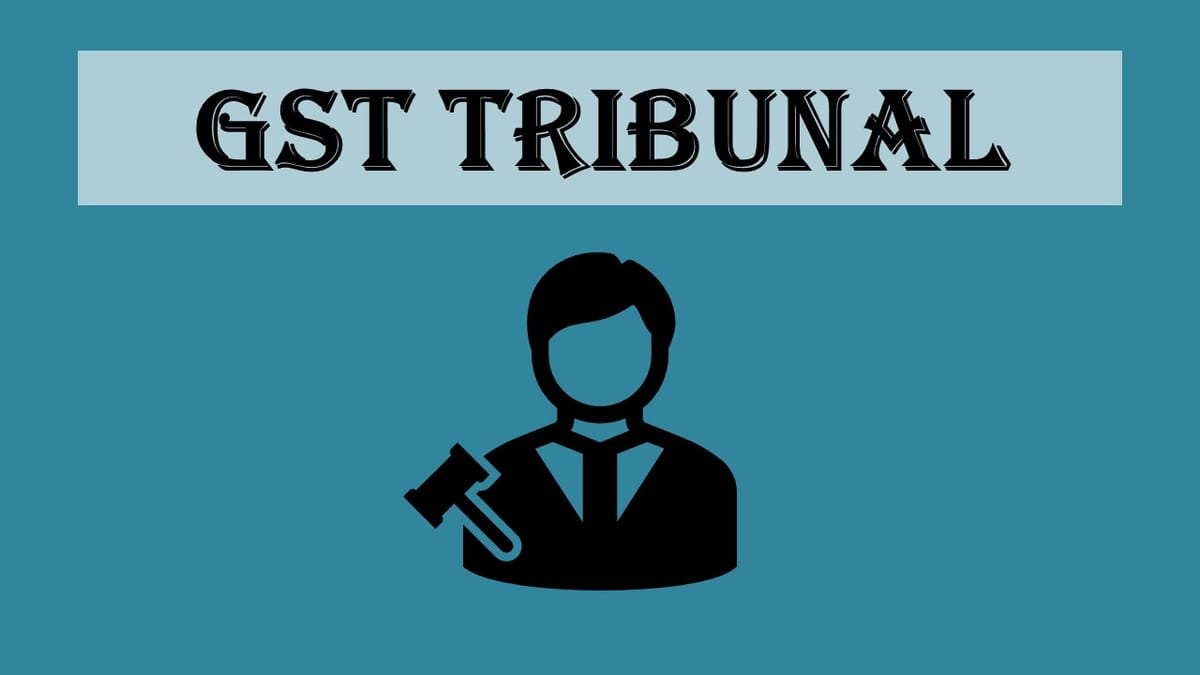CA Pratibha Goyal | Jun 23, 2022 |

High Court refuses to provide Statutory remedy in Absence of GST Tribunal
In the matter of Manokamna vs Union of India (UOI) the Patna High Court has refused to quash the GST Demand as such relief would amount to succeed in challenging the vires of Section 16(4).
Having regard to the submissions noted hereinabove and on perusal of the records, this Court finds that in the prayer portion of the writ application in paragraph ‘1’ (L), the petitioner has prayed for quashing of the order dated 16.12.2021 and summary of the demand issue in form GST APL-04 dated 21.12.2021, the petitioner has also challenged the order passed under Section 73 of the GST Act and the summary demand issued in Form GST DRC-07 dated 03.03.2020 but from the tone and tenor of the prayer itself it is clear that such reliefs are by way of consequential reliefs and unless the petitioner succeeds in challenging the vires of Section 16(4), perhaps he may not get the relief as prayed in paragraph ‘1’(L) of the writ application.
In the given circumstance, in the opinion of this Court, staying the impugned order in the light of Sub Section (8) of Section 112 of the GST Act would in sum and substance amount to staying the effect of Section 16(4) of the GST Act which this Court would restrain from doing.
The main submission for purpose of interim relief is that presently the GST council is not constituted in the State of Bihar, therefore, the petitioner is deprived of availing of the remedy available under Section 112 of the GST Act which provides for appeals to the GST appellate tribunal.
Learned counsel for the petitioner prays for defreezing at least the saving bank account of the proprietor of the petitioner firm.
Mr. Gautum Kejriwal, learned counsel for the petitioner submits that the coercive action has been taken by freezing the account from the petitioner’s firm including the saving bank account of the proprietor as a measure for recovery of the amount of tax interest and penalty in terms of the impugned order.
It is submitted that in the present application the vires of Section 16(4) of the Central Goods and Services Tax Act, 2017 (hereinafter referred to as the ‘GST Act’) has been challenged on various grounds including that it is an infringement of the fundamental rights guaranteed to the petitioner under Article 14 and 19 (1)(g) and the constitutional right granted under Article 300A of the Constitution of India.
The main submission for purpose of interim relief is that presently the GST council is not constituted in the State of Bihar, therefore, the petitioner is deprived of availing the remedy available under Section 112 of the GST Act which provides for appeals to the appellate tribunal.
Learned counsel has pointed out that in terms of clause (b) of Sub section (8) of Section 112, for maintaining an appeal one of the mandatory requirements is to deposit a sum equal to 20% of the remaining amount of tax in dispute, in addition to the amount paid under Sub section (6) of Section 107 (subject to a maximum of 50 crore rupees) in relation to which the appeal has been filed. Further, it is pointed out by virtue of Sub section (9) of Section 112 of the Act of 2017 where the appellant has paid the amount as per Sub section (8) the recovery proceedings for the balance amount shall be deemed to be stayed till the disposal of the appeal. It is submitted that the petitioner is ready to deposit 20% of the remaining amount of tax in dispute in terms of clause (b) of Sub section (8) of Section 112 of the GST Act.
The prayer for interim relief has been contested by Mr. Vikash Kumar, learned counsel representing the respondents-State. Learned counsel submits that in this case the petitioner has been challenging the vires of Section 16(4) of the GST Act and his challenge to the impugned order and the demand raised are totally dependent upon his success in challenging the vires of Section 16(4) of the GST Act. It is his submission in such circumstance stay of the impugned order would amount to virtually staying the operation of the provisions of Section 16(4) of the GST Act. It is submitted that the High Court while dealing with the vires of the statute would not normally stay the effect of legislation.
Learned counsel has further placed before this Court a copy of the order dated 20.04.2022 passed by the Hon’ble Division Bench of this Court in C.W.J.C. No. 5403 of 2022 to submit that in similar circumstance when the petitioner in the said case challenged the constitutional validity of the provision and prayed for stay of the demand, the Hon’ble Division Bench took a view that the petitioner’s account may be de-attached if the petitioner positively deposits the entire liability amount. Learned counsel, thus, submits that at this stage the petitioner may also be treated similarly and if he deposits the entire determined liability, a similar order as that of the Hon’ble Division Bench may be passed.
In case of any Doubt regarding Membership you can mail us at contact@studycafe.in
Join Studycafe's WhatsApp Group or Telegram Channel for Latest Updates on Government Job, Sarkari Naukri, Private Jobs, Income Tax, GST, Companies Act, Judgements and CA, CS, ICWA, and MUCH MORE!"